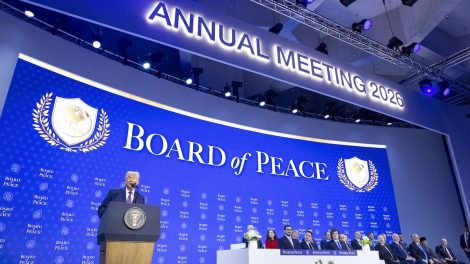Patrick Zaki gets a presidential pardon. On Wednesday, the Egyptian national – and prospective honorary Italian citizen – was granted presidential grace by Egyptian President Abdel Fattah al-Sisi, local authorities reported. Mr Zaki was dealt a non-appealable three-year jail sentence only a day earlier, following a long judicial proceeding that had become a matter of contention between Rome and Cairo.
- The 32-year-old Coptic Christian, a postgraduate student at the University of Bologna and human rights activist, was arrested in 2020 upon his return from Italy. He had been found guilty of “spreading false news” and threatening national security. He had already spent 22 months in jail.
- The events triggered multiple and widespread protests among Italians and human rights associations since his arrest, with many criticising the charges brought up by the Egyptian authorities.
Celebrations in Rome. The news was announced during a Senate sitting, triggering a long applause on behalf of MPs. The crowds gathering across major cities to protest his imprisonment found a reason to rejoice instead, with Amnesty International’s Riccardo Noury calling it a “day for happiness.”
- In a video message, Prime Minister Giorgia Meloni thanked President al-Sisi and noted that she had always found him to be receptive on the issue in their contacts. She also thanked Italian and Egyptian intelligence for their work. “Tomorrow Patrick Zaki will return to Italy, and I wish him, from the bottom of my heart, a life of serenity and success,” she added.
- “Thanks to the government’s foreign policy, we have made a decisive contribution to freeing this young student,” tweeted Foreign Minister Antonio Tajani, highlighting the executive’s “concrete results through work and international credibility.”
- Defence Minister Guido Crosetto also remarked that the result was “not casual” and attributed it to Rome’s “work, relationships, seriousness, consideration, diplomacy, sense of institutions [and] respect.”
Our take: the decision is certainly a legal one, but not devoid of geopolitical undertones. The Meloni government has worked to find a quick solution, and Cairo responded with an eye on not upsetting the balance with Rome. Italy and Egypt are two crucial players in the Mediterranean, partners in various cooperation projects ranging from security to energy.
- The Egyptian decision had caused concern in the European Union and the United States beyond Italy, as it was seen as Egypt closing the doors on foreign nationals – a problem for a country trying to emerge from economic difficulties by attracting foreign investment.
- US sources explain that the condemnation was also read as a decision against Christians in Egypt: something that, given the value that interreligious dialogue has for the Biden administration, was seen as problematic.





